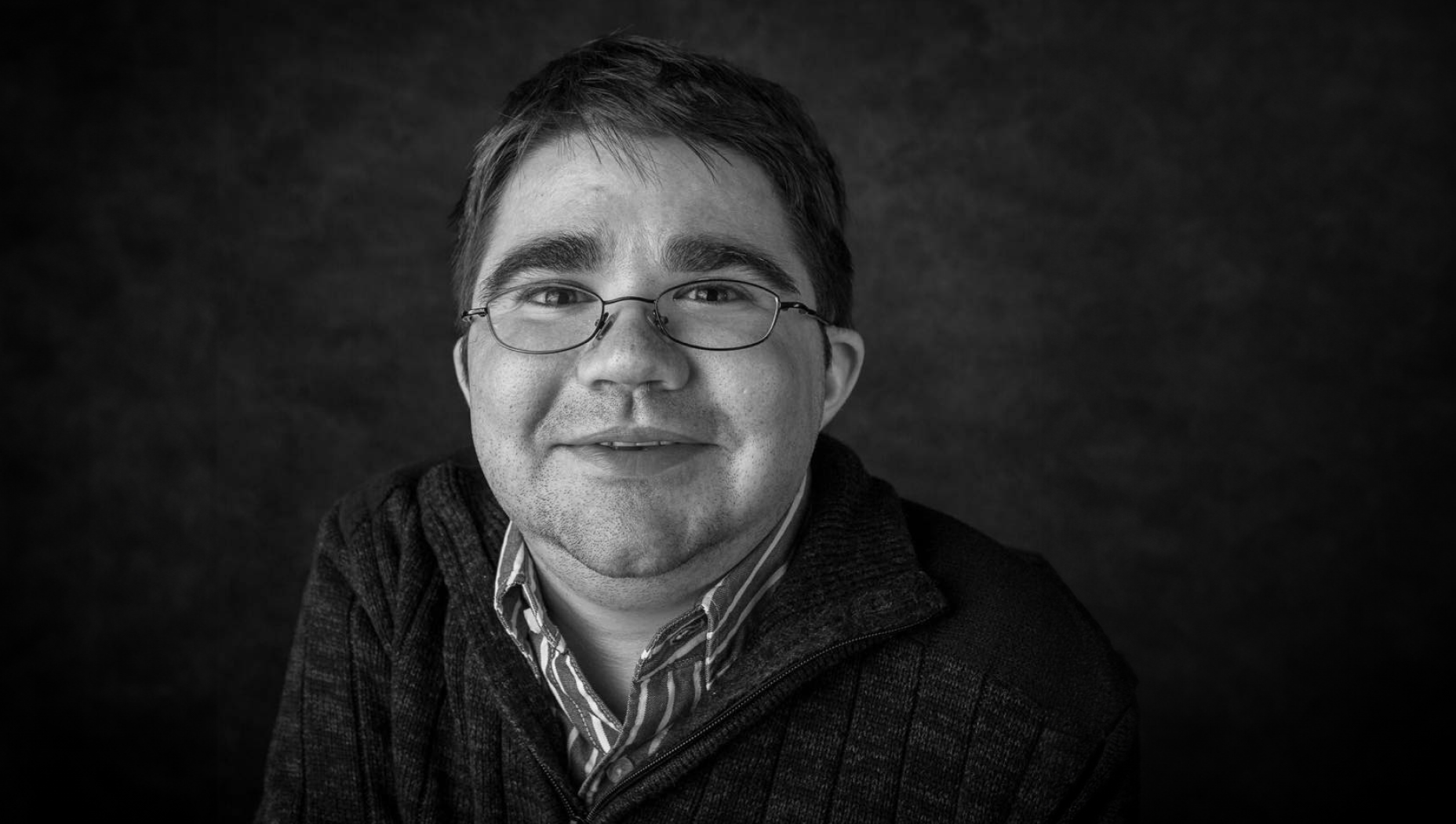
Buddy Cassidy, Disability Advocate
“When someone important needs to make a decision, issue a judgment, he must not do it alone. He must take counsel…. I examined promising trial data from Sarepta. And then I read started reading the testimonies of clinicians in the docket. Accompanying some of these testimonies were before and after videos of dosed patients. I watched the videos. And I watched them again. Most wonderful!”
UCI English graduate student Christopher (Buddy) Cassidy spoke these words at the Parent Project Muscular Dystrophy (PPMD) conference in Dallas in July, 2023, recalling a line from Shakespeare’s Twelfth Night to tell the story of how he came to speak before congress and the FDA in support of a crucial new gene therapy for Duchenne Muscular Dystrophy (DMD). It was a story of research and good counsel: two key pillars of Buddy’s graduate education in medieval and Early Modern literature.
This past May, Buddy served as a voting patient representative at the FDA’s Public Advisory Committee hearing for Elevidys, the first gene therapy developed for the treatment of DMD. He debated with FDA and other committee members for 9 hours. “I had to draw from all my rhetorical and literary knowledge. I even brought up Francis Bacon and the origins of the Scientific Revolution,” he said.
Buddy approached the drug approval process the same way he approaches his dissertation: “I read,” he said at the PPMD conference, “it’s what I do…. That’s what happens when you put a grad student on one of these things. We read everything, examine methods, and leave no stone unturned.” Reading empowered him, and so did the advice and counsel of his community. It is no accident that Buddy is writing a dissertation on the politics of counsel and advice. “I was confident in my judgment because I had good and reliable counselors, all of you,” he said to the PPMD audience.
It worked. The committee, with a narrow 8-6 vote, recommended the FDA grant accelerated approval status for Elevidys. On June 22, the FDA approved Elevidys for the treatment of 4-6 year olds with DMD—a treatment that “really changes everything,” he said.
Buddy’s work was honored at the PPMD conference in July, where he gave the keynote address and was awarded the Change It Champion Award for 2023, given to “an individual who actively and enthusiastically advocates for and drives positive change within the Duchenne community.”
Buddy Cassidy became involved in disability advocacy at the age of 9, serving as the local Muscular Dystrophy Association (MDA) Goodwill Ambassador from 1999 to 2001. During that time he was junior emcee on the local MDA Jerry Lewis Telethon, and he worked with his family to organize Swim-a-Thons with his local swim team to raise money for MDA.
After graduating from the University of Richmond in 2011, Buddy worked as an intern in MDA’s Advocacy Office in Washington, D.C. He wrote and spoke extensively about his experiences as a person with a neuromuscular disease transitioning to adulthood and achieving independence. In 2014, he began advocacy work on behalf of PPMD, which spreads awareness around Duchenne and Becker Muscular Dystrophy and funds research for the treatment of these diseases. From 2014-2019 Buddy served as a founding member of PPMD’s Adult Advisory Council.
In 2015, Buddy acted as a voting member of the FDA’s Public Advisory Committee hearing for drisapersen, the first treatment exclusively for DMD that the FDA considered for approval. Disturbed by the treatment’s potential side effects, he voted against recommendation for approval. But more recently, impressed by both the incredible benefits of Elevidys and its low risk profile, he voted to recommend approval.
Buddy also spoke before the United Nations on Wednesday, November 15. One of the biggest challenges for the Duchenne community across the world is diagnosis. With Pat Furlong, the president of PPMD, Buddy traveled to NYC to build support for the passage of a UN resolution that would formally recognize September 7th as World Duchenne Awareness Day. This would make Duchenne the first rare disease officially recognized by the UN, raising awareness among doctors and public health officials worldwide.
While finishing his dissertation, Buddy is also advocating for more serious, formal consideration of patient input in the FDA’s regulatory approval process, specifically patient-reported outcomes. In a recent interview with PPMD for Duchenne Awareness Month, Buddy observed: “There’s pushback among public health policy experts against the growing influence of the patient voice in drug development and approval. And it’s weird to me. We’re at the beginning of a new era of increasingly personalized genetic medicine. God forbid patients weigh in on their own care, right?
“So I like to think that when I was on that FDA advisory committee I broke down the barrier between experts and patients. I showed that the patient is an expert, just as deserving of a place in the conversation. The other members of the panel, experts in the conventional sense, knew many things, science, medicine, and policy. But I knew ONE BIG THING. Living with Duchenne. Who better to do a risk-benefit analysis? Who else could speak to concerns about quality of life?”
For Buddy’s moving address to the PPMD community, see https://youtu.be/4e-YLAvEJz4.
